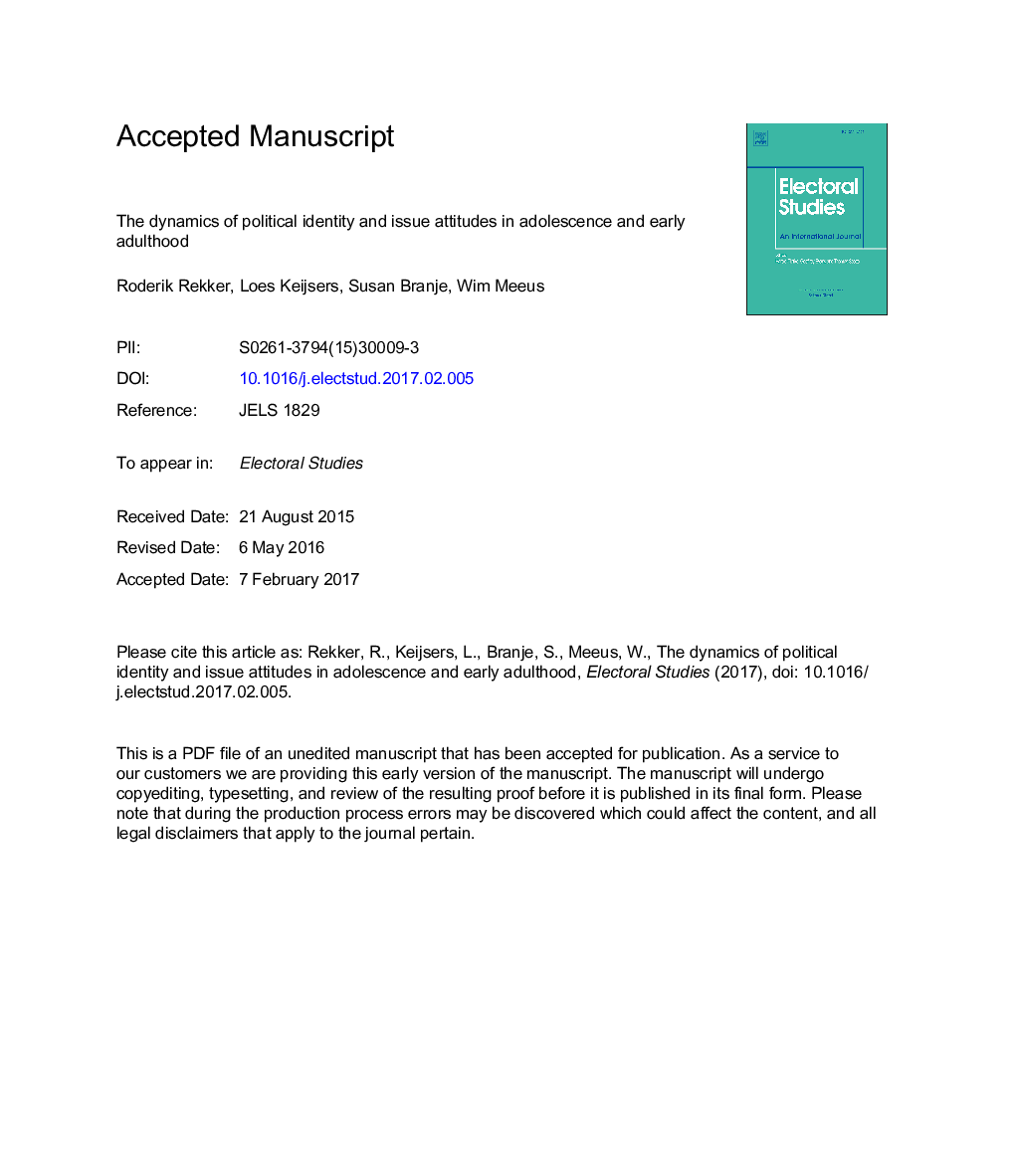| Article ID | Journal | Published Year | Pages | File Type |
|---|---|---|---|---|
| 5115516 | Electoral Studies | 2017 | 33 Pages |
Abstract
This cohort-sequential longitudinal study among 1302 Dutch youths examined the dynamics of political identity (e.g., Democrat or Rightist) and issue attitudes between age 12 and 30. Some theories propose that voters form an identity early in life that subsequently determines attitudes. Other theories contrarily argue that attitudes are a cause of identity. However, research on this controversy has never focused on the crucial phase of adolescence. Results revealed that youths formed an identity consistent with prior attitudes more than vice versa. Highly educated youths most often adjusted their attitudes to their identity, which explained an emerging education gap in identity-attitude consistency. Finally, findings suggested that early cultural attitudes establish an identity that may subsequently determine economic attitudes.
Related Topics
Social Sciences and Humanities
Social Sciences
Geography, Planning and Development
Authors
Roderik Rekker, Loes Keijsers, Susan Branje, Wim Meeus,
